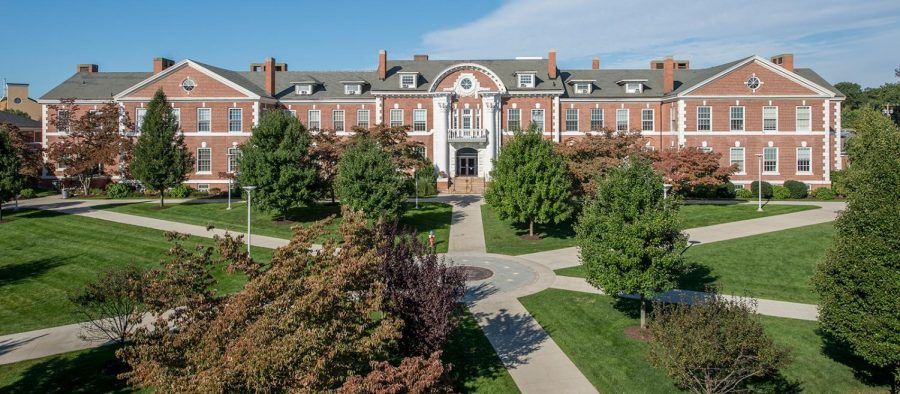Commuter students say they’re tired of being “dismissed” amid changes caused by COVID-19
In the middle of the changes the University of New Haven is facing because of state coronavirus guidelines, commuter students say they lack information about their return to campus.
Following the first virtual town hall meeting held on June 30 on Facebook, students and their parents posted angry comments about what they said was a lack of concern from the university for commuting students.
During the live session, students were allowed to leave questions for the university’s COVID-19 task force co-chairs, dean of the school of health sciences, Summer McGee, and associate vice president of public safety and administrative services, Ronald Quagliani.
Commuters and their families took to the comment section to clarify doubts about how the new policies apply to them, and they say they received either short answers or none at all.
According to Jeffrey Luoma, associate director or institutional research, 58% of students at the university live on-campus, and 39.9% are commuter students.
At one point in the live session, Charlie the Charger, who was moderating the comment section, wrote, “We are attempting to answer all questions as best we can. Many of the commuter questions simply said, what about commuters? And so, the panelists are weaving commuter information into their answers where appropriate.”
While commuter students say they understand university officials are doing the best they can in the current situation, some also said they think there should be more communication.
“I think they need to communicate more with students and their families about what exactly is happening, even if it’s just while they’re working through making a decision,” said Madison Bratz, a junior criminal justice major
Rachael Brown, another junior criminal justice major, said, “The university is handling it rather well compared to other schools. However, questions that they do not have the answers to are being ignored rather than properly addressed.”
Students like Bratz have also said that the university appears to be paying more attention to residential students and is brushing off concerns of commuters.
“I feel like commuter students are being dismissed during these current changes because with the changes they’ve implemented as of now, it seems as though they aimed them to better fit within residential students,” said Bratz.
Maddy Mandeville, also a junior criminal justice major, said that commuter students are “100% percent being dismissed.” She said that there needs to be a “better flow of communication regarding how [these changes] will impact commuter students.”
McGee told the Charger Bulletin that the state of Connecticut is responsible for any decisions made at the university regarding the changes, and explained that this is the reason why the university has focused on residential students more than commuter students.
“I think that when the state of Connecticut issued their guidance around testing and reopening the university,” said McGee, “the state’s attention was more on residential students because of the concerns about living in close quarters and residence halls.”
However, Jennifer Widness, president of the Connecticut Conference of Independent Colleges (CCIC), said that there has not been any official word from the state of Connecticut about how information should be distributed to the student body.
“The state has not given guidance as to how an institution should communicate with various constituencies within the campus community,” Widness said.
The state of Connecticut is advising higher education institutions that all residential students are expected to bring a negative COVID-19 test to campus.
“I think the variance could be that the state’s testing requirements are only applicable to residential students at this time,” said Widness, “not to students living off-campus. It may make sense for the institution to communicate that requirement to residential students only as it does not currently apply to students living off-campus.”
This issue has not been brought up in any press communication Gov. Ned Lamont has held to date.
McGee also said that if students are concerned about being on campus this semester, they should reach out to their advisors and associate deans for schedule changes. She encouraged students to plan ahead.
“We know some students want a fully online schedule to the extent that it is possible to accommodate,” said McGee. “We will work with students to be able to do that if that’s what they’re looking to do.”
McGee also said that the university is changing the course-delivery options to have as many on-ground classes as possible.
Students also said they are concerned about additional expenses because of insufficient shuttle stops, which may force students to spend money on alternate modes of transportation.
“For me, the only additional expenses may be a few unexpected Uber rides if the shuttles are full or not on time,” said Barry Libowitz, a junior majoring in marine biology. “For some, I imagine they will have to change their budgets significantly to reflect additional ride fairs or gasoline expenses should schedules shift significantly enough.”
Shaylen Stancil, a junior majoring in communication, suggested that commuters should be eligible to receive some money from the university so they are able to cover traveling and other expenses.
“I think that commuter students should be able to request some form of a stipend or financial compensation for transportation expenses,” said Stancil. “There are some students from places like New York, Northern Connecticut, and Massachusetts that have to commute now, which means that they will be spending more money on gas or train tickets. There are also potential students that are still out of work as a result of COVID-19 and may not have the funds to support this kind of change.”
Mandeville, who lives 30 minutes away from campus, said that last semester, she drove about 120 miles for school twice a week.
“I would have to fill up my tank twice a week, each fill-up costing between $25-$30,” said Mandeville. “For a whole semester, that is 15 weeks, I spent between $750-$900. That is an estimate but putting it into that perspective shows how much a commuter can approximately spend per semester.”
According to the MetroNorth website, a one-way train ticket fare from Grand Central Terminal to the West Haven train station, which is located about eight minutes away from campus, costs around $30. Similarly, a one-way ticket from New Canaan is about $9 each way.
“We do not offer specific commuter scholarships designed to assist with traveling expenses,” said Marc Mantis, associate vice president for student financial and registrar services. “The aid and scholarships we offer are merit- and need-based awards and these can be applicable to both residential and commuter students.”
In terms of university transportation, Greg Eichhorn, vice president for enrollment and student success – who is also a part of the COVID-19 task force – said that shuttles and vans “will run at 50% occupancy as mandated by state regulations, with requirements to wear face coverings and maintain 6 feet of physical distancing.”
Eichhorn also said that the shuttle schedules will be up within the next few weeks.
“We have technology for shuttle tracking and real-time capacity calculations on all shuttle buses,” said Eichhorn. “Plexiglass will be installed between seats as needed, and enhanced cleaning and sanitization procedures will also be in effect.”
McGee said students should email their questions and concerns to the university’s COVID-19 task force. Another town hall forum for commuter students will be live on Charlie the Charger’s Facebook page at 6 p.m. on July 21.
If commuter students have questions or suggestions about how to better the commuter experience, Eichhorn encouraged them to reach out to the Commuter Club.

Amanda is a senior majoring in communication with a concentration in journalism, and a double minor in political science and English. She has been involved...











